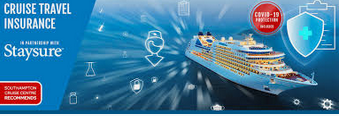One of the most common components of any vacation itinerary, whether for work or pleasure, is the rental automobile. Nevertheless, many inquiries, particularly concerning insurance and coverage, accompany this ease. Although it is an important part of renting a car, insurance is a complicated and often perplexing subject. To help you make educated decisions and have a seamless rental experience, this guide will break down all the information you need to know regarding rental car coverage.
Can You Explain Rental Car Insurance?
When you hire a car, the rental agency may offer you a variety of insurance and protection programs. These policies are put in place to protect you in the event that any monetary losses or obligations could arise while you are renting. From bodily harm to property loss, they cover it all in the event of an accident.
Various Rental Car Insurance Policies
If you want to get the best coverage for your rental automobile, you need to know what kinds of coverage are available. A comprehensive overview of the most popular rental car insurance policies is presented here:
1. Damage Waiver for Collisions (CDW)
Your financial responsibility in the event of damage or theft to the rental vehicle might be alleviated with Collision Damage Waiver (CDW), also known as Loss Damage Waiver (LDW). Rental businesses often offer CDW as a waiver to cover repairs or replacement costs, even though it isn’t exactly insurance.
Here are the main points:
- Collision Damage Waiver (CDW) protects the rental automobile in the event of an accident, theft, or vandalism.
- You may be required to pay a deductible that is commonly associated with it.
- The rental car company may charge you for the time the vehicle is out of commission because of repairs; some CDW plans may cover these costs.
2. Insurance against Legal Actions
The rental car’s Liability Insurance will pay for any harm you do to other persons or their property while behind the wheel. It consists of two primary parts and is required by law in several areas:
Bodily Injury Liability
Should an accident cause harm to another person, it will cover their medical bills, legal fees, and other related charges.
Property Damage Liability
In the event of an accident, Property Damage Liability will pay to fix or replace any damaged property.
Important Points:
- Rental agreements typically include liability insurance, although the levels of coverage may be inadequate.
- If you need more coverage, you may typically get more liability insurance.
3. Personal Accident Insurance (PAI)
Personal Accident Insurance (PAI) protects you and your passengers from financial hardship in the case of an accident by covering medical expenses and providing accidental death payments.
Most Important Points:
- Paramedic services, hospital bills, and benefits for accidental death are all covered by PAI.
- Pre-existing conditions or injuries unconnected to the rental vehicle accident are not covered.
4. Personal Effects Coverage (PEC)
Personal Effects Coverage (PEC) protects your belongings in the event that they are stolen or destroyed while in the rental vehicle.
Major Takeaways:
- Personal Effects Coverage (PEC) protects your valuables in the event of a rental automobile accident.
- If the automobile was left unattended and unsecured, it will not cover any things stolen from within.
5. Additional Coverage for Legal Defense
If you’re looking for liability coverage beyond what’s already included in your rental agreement, you may get it with Supplemental Liability Insurance (SLI).
Most Important Points:
- SLI provides superior liability coverage limits.
- It’s a great option for drivers who desire an additional layer of defense against any financial and legal liabilities arising from accidents.
Advantages of Renter’s Liability Insurance
There are various advantages to having the correct rental automobile insurance, such as:
- Relief from Worry: Having insurance might put your mind at ease regarding possible accidents or damage.
- Financial Security: Insurance shields you from having to pay out of pocket for things like repairs, medical bills, or legal fees.
- Rental coverage offers the convenience of a streamlined claims process and direct support from the rental agency.
- Legal Compliance: This feature makes sure that your liability insurance satisfies the regulations of different countries.
Picking the Appropriate Rental Car Insurance
Evaluate your demands and familiarize yourself with the available options to choose the appropriate rental car coverage. In order to make a well-informed choice, consider the following:
1. Verify Your Current Insurance Coverage
Know what kind of coverage you already have with your car insurance and credit cards before you get rental car insurance. Rental car coverage is often already included in your personal auto insurance policy, and many credit cards even offer rental car insurance as an extra advantage.
2. Determine What You Need for Your Trip
Think about how far you’ll be driving, how often, and for how long you’ll be using the rental car. While a lengthy road journey may necessitate extra protection, a shorter excursion may not necessitate as much coverage.
3. Analyze Available Coverage
Compare the rental company’s coverage options with your current insurance policies and evaluate them accordingly. Find out where your insurance is lacking and figure out if you need more coverage.
4. Read and Fully Comprehend the Agreement
Before deciding on a coverage plan, make sure you read all of the fine print. Be sure you know what’s covered and what isn’t by paying close attention to the deductible, exclusions, and limits.
5. Take into Account How Comfortable You Are
When picking on coverage, your level of comfort with risk is crucial. Getting full coverage could be the way to go if you want to shield yourself from financial risk.
Rental Car Insurance Premiums
Insurance for rented cars can be pricey because it depends on factors including the rental agency, the location, and the kind of coverage you need. The usual expenses are broken out as follows:
- CDW: $10-$30 daily is the price for the collision damage waiver.
- Daily premiums for liability insurance: $7–$15.
- One to five dollars daily for Personal Accident Insurance (PAI).
- Daily premiums for Personal Effects Coverage (PEC): $1-5.
- $8–$15 a day for Supplemental Liability Insurance (SLI).
Helpful Hints for Car Rentals and Insurance Choices
Some extra advice on choosing the correct insurance for your rental car:
- Plan Ahead: You can usually get better deals and more availability if you plan ahead of time.
- Inspect the Automobile: Before you hit the road, make sure the rental automobile is free of any damage and notify the rental agency.
- Retain Records: Make note of the vehicle’s condition and retain a duplicate of the rental agreement.
- Ask Questions: If you have any questions about the coverage details, don’t be shy about asking the rental business.
- Read Carefully: Before signing the rental agreement, read it carefully and make note of all the important details, such as the insurance policy, payment terms, and return policies.
Misconceptions Most People Have Regarding Rental Car Insurance</ h2>
You can make more informed choices regarding rental car coverage if you are aware of the following myths:
1. “Rental cars are automatically covered by my personal auto insurance.”
Rental automobile coverage is included in many personal auto insurance policies, however the amount of coverage varies. Make sure you have enough coverage by checking with your insurance company.
2. “Rental car insurance is fully covered by credit cards.”
There may be restrictions and exceptions to the rental car insurance advantages offered by credit cards. Before you depend on your credit card’s rental car insurance, be sure you read the terms.
3. “CDW Doesn’t Give Me Anything to Be Worried About”
CDW waivers protect the rental automobile in the event of damage, although they may have large deductibles or exclusions. Learn the ins and outs of what CDW covers.
4. “Liability insurance is sufficient in all cases.”
Rental businesses may not have enough coverage for serious accidents under their basic liability insurance. For extra security, you might want to think about getting higher liability insurance.
In Summary
An integral part of renting a car is getting insurance, which protects you from a number of potential problems. You can make an educated decision and get enough coverage during your rental if you know what kinds of coverage are available, how they work, and how much they cost. If you are knowledgeable about your insurance options, whether it’s through your current policy, credit card perks, or the rental company’s supplementary coverage, you may confidently handle the rental process.
Your current insurance policy, your trip requirements, and the rental car agreement’s details should all be carefully considered before deciding on the appropriate rental car coverage. You should be able to choose the finest coverage options for a worry-free rental experience with the information offered in this article.
Coverage for Rental Cars: Common FAQs
Q1: Do I need to get additional insurance for a rental automobile if my current policy covers my vehicle?
One possible answer is that it is policy-specific. While rental car coverage is a common perk, policy details and restrictions can vary widely. For confirmation, contact your insurance company.
Q2: Is there insurance for rental cars through my credit card?
Rental automobile insurance is sometimes offered by credit cards, however there may be restrictions and omissions. Look over the coverage details of the rental car insurance that comes with your credit card.
Q3: In the event of an accident involving a rented car, what steps should I take?
Get in touch with the rental car agency right away, notify the police, and take pictures of the accident site. Please submit all necessary information in accordance with the rental company’s claims processes.
Q4: Is it possible to use the insurance on my rental car while traveling internationally?
Insurance for rental cars differs from one nation to another, as stated in FAQ 4. Before you book your rental car, call your insurance company and make sure you have enough coverage for your foreign trip.
Q5: What is the policy about late rental car returns?
There will be extra charges if you return the rental car late. Rental policies and fines for late returns are detailed in the agreement.




